SKM Recycling waste stockpiles in Adelaide likely to be dumped at South Australian landfills
Think all your recycling has been worth it? Waste from tens of thousands of SA homes has been going directly from bins to shipping containers - and now it’s destined for landfill.
- SKM Recycling dumped Adelaide waste in Melbourne
- Hundreds of shipping containers full of waste stuck in Adelaide
- SKM Recycling suddenly closes Adelaide plants
Thousands of tonnes of waste left behind in Adelaide by a Victorian recycling company looks destined to be dumped at a private landfill.
International waste giant Cleanaway is working with receivers appointed to SKM Recycling to manage huge stockpiles of yellow-bin material in South Australia, Victoria and Tasmania.
Cleanaway was SKM’s biggest creditor and has expressed interest in buying its assets, including two licensed waste depots in Adelaide.
Huge stockpiles of waste have been stored by SKM inside shipping containers at Wingfield and a large shed at Lonsdale for almost two years.
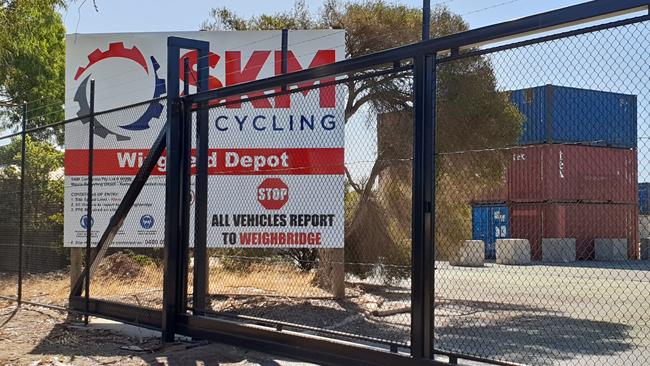
Cleanaway – which was owed $60 million by the company – operates recycling facilities in Melbourne capable of processing the South Australian waste.
It also owns a landfill at Inkerman, north of Adelaide, where the waste can be dumped if the Environment Protection Authority grants an exemption.
The company owns a fleet of trucks which could transport the 381 shipping containers containing an estimated 9000 tonnes of waste from Wingfield.
It would then have to pay a solid waste levy tax of $100 for every tonne dumped, which would be collected by the EPA.
However, a KordaMentha spokesman said the priority was helping numerous Victorian councils and private landowners deal with a statewide recycling crisis caused by SKM’s financial collapse.
Several councils have been dumping yellow bin material at landfills while huge stockpiles of waste – including material already trucked from SA – need to be removed from private warehouses rented by SKM in Melbourne.
Another option was sending the waste at Wingfield and Lonsdale to a processing facility operated by the Northern Adelaide Waste Management Authority (NAWMA) at Edinburgh Parks.
However, the NAWMA facility — operated by Salisbury, Playford and Gawler councils — already is running at capacity, with six councils which terminated contracts with SKM earlier this year now using it to process their yellow bin material.
“This waste problem is bloody huge and it isn’t going be solved overnight,” said the KordaMentha spokesman.
“We have only just been appointed and we need time to work through all the issues.
“The first priority is stabilising the (SKM) business and getting the Victorian plants back up and running.”
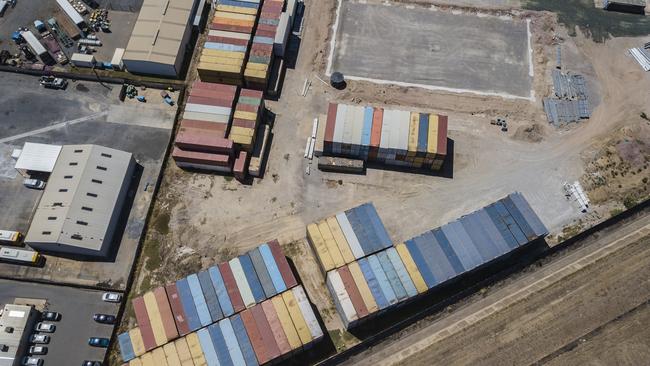
The spokesman said KordaMentha had sought a briefing about the Adelaide waste stockpiles.
“KordaMentha does not discriminate between states and will deal with the issues in Victoria and South Australia by meeting all of the legal and environmental requirements,” he said.
NAWMA chief executive Adam Faulkner said the thousands of tonnes of material left behind in Adelaide by SKM needed to be inspected before any decisions were made about its future.
“It definitely has value (as a recycling resource) but it all depends on what sort of condition it is in and how long it has been there for,” he said.
Mr Faulkner urged South Australians to continue using their yellow bins despite learning that none of the material collected by SKM from nine Adelaide councils was processed within SA.
Instead it was baled and transported to Melbourne for export to China before the country banned importations of contaminated recycling material last year.
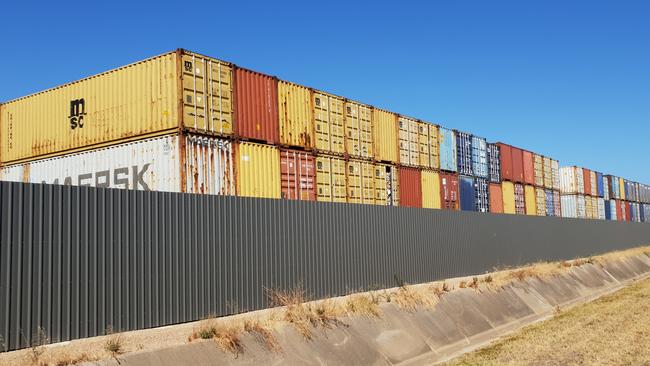
Mr Faulkner said NAWMA and a private recycling company, Visy, had begun processing all of South Australia’s yellow bin material since SKM left the state in March.
“NAWMA processes around half of South Australia’s yellow top bins at Edinburgh Parks and markets the sorted paper, plastics, glass and metals locally in South Australia and across Australia,” he said.
“Households should not lose confidence in the recycling system. Recycling creates local jobs and benefits the environment.”
Local Government Association president Sam Telfer said the collapse of SKM had highlighted the need for greater investment in material recovery facilities in South Australia.
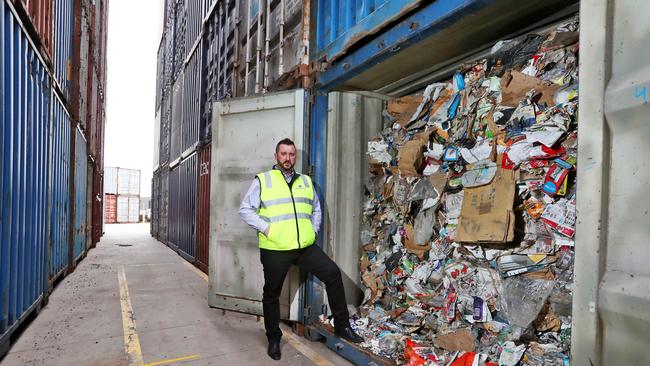
Mr Telfer repeated earlier calls for the State Government to release more money from the Green Industry Fund to support recycling iniatitives, particularly by councils.
The fund receives half of the money raised from a tax on rubbish dumped at landfills, which the State Government increased by 40 per cent without warning in the State Budget.
The sudden hike threw council budgets into chaos, with some mayors accusing the Government of using the money for sand erosion measures in a marginal Liberal seat.
“While South Australia’s ratepayers will pay around $42.5 million to the State Government’s Solid Waste Levy this year, councils and the industry will only have access to $2.5 million in grants,” said Mr Telfer.
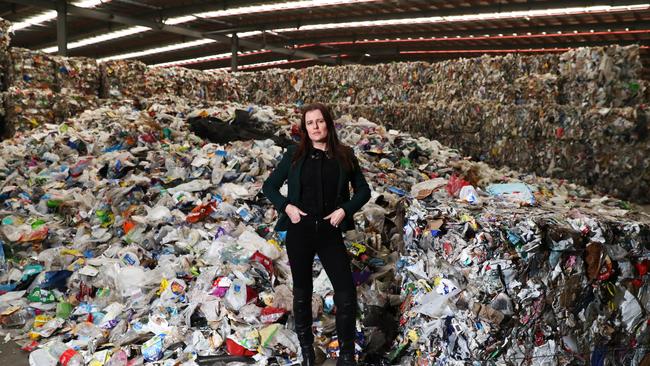
“We are facing a recycling crisis in our state, and money collected through the levy should be spent on improving our recycling capacity, not remediating Adelaide’s beaches.”
Mr Telfer said more money was needed to help develop new local markets for recycled materials.
Environment Minister David Speirs said the State Government had provided $24 million to boost the state’s recycling industry.
“The government supports measures that encourage waste reduction, including the recently announced ban on single-use plastics, and the current review of the state’s container deposit scheme,” he said.
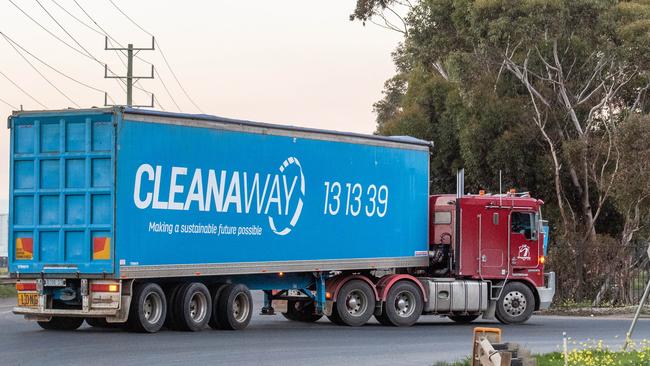
Mr Speirs said the issues at Wingfield “are related to a single interstate operator”.
“SKM was a unique case as its business model initially involved purchasing waste from councils and then sending it to Victoria for processing, incurring extra costs,” he said.
“This business model was further hindered by China’s National Sword Policy, by reducing costs on recycled materials.”
Mr Speirs said it was illegal to dump recycling at South Australia landfills unless authorised by the EPA.
“As the material stored at SKM (Wingfield and Lonsdale) is aggregated recyclables, currently, the only available option is for it to be processed and recycled,” he said.
“The material is prohibited from being sent to landfill under the Waste to Resources Policy.
Mr Speirs said the EPA and KordaMentha were “exploring all possible options” to deal with the stockpiles.
